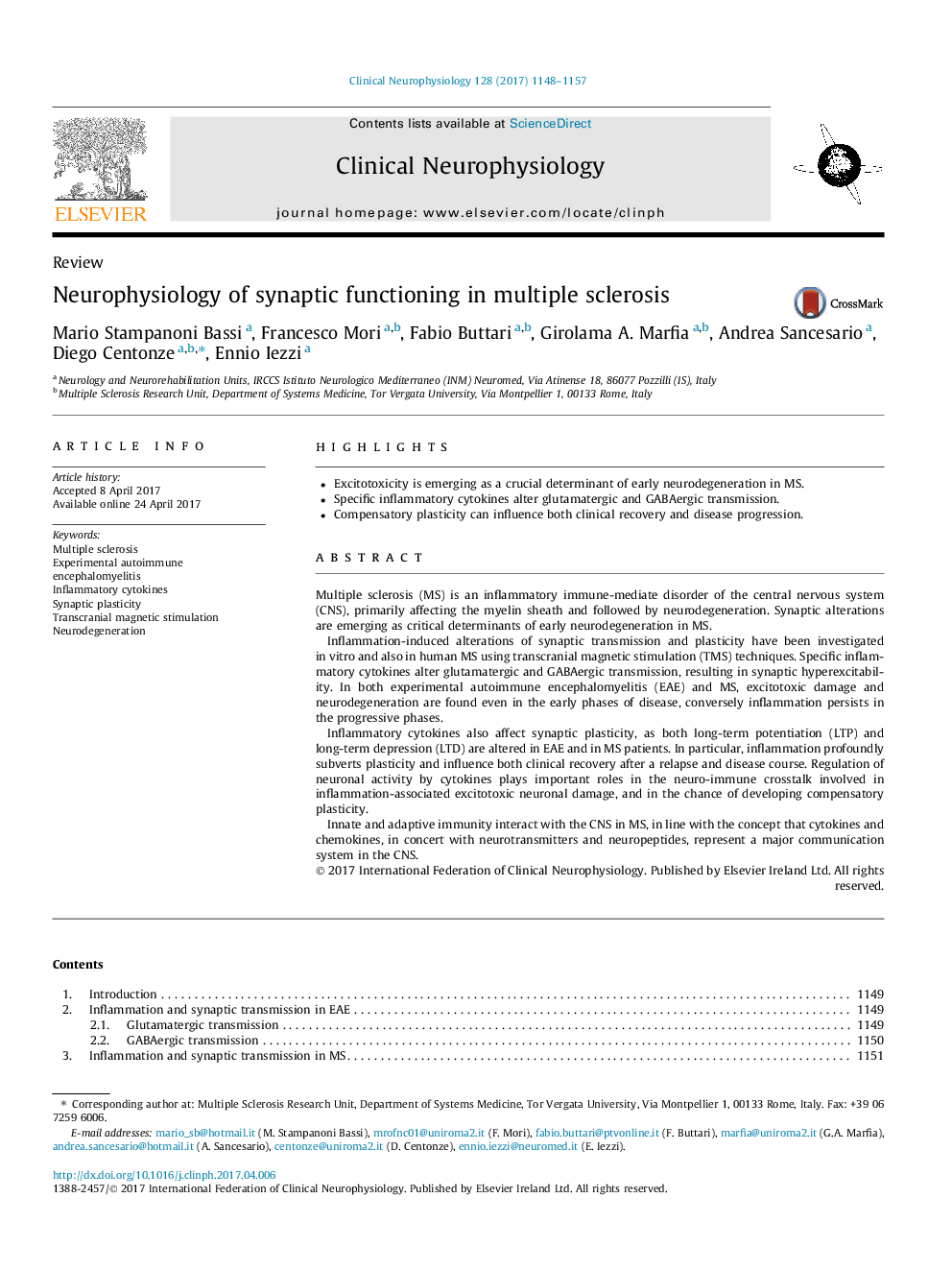| Article ID | Journal | Published Year | Pages | File Type |
|---|---|---|---|---|
| 5627819 | Clinical Neurophysiology | 2017 | 10 Pages |
â¢Excitotoxicity is emerging as a crucial determinant of early neurodegeneration in MS.â¢Specific inflammatory cytokines alter glutamatergic and GABAergic transmission.â¢Compensatory plasticity can influence both clinical recovery and disease progression.
Multiple sclerosis (MS) is an inflammatory immune-mediate disorder of the central nervous system (CNS), primarily affecting the myelin sheath and followed by neurodegeneration. Synaptic alterations are emerging as critical determinants of early neurodegeneration in MS.Inflammation-induced alterations of synaptic transmission and plasticity have been investigated in vitro and also in human MS using transcranial magnetic stimulation (TMS) techniques. Specific inflammatory cytokines alter glutamatergic and GABAergic transmission, resulting in synaptic hyperexcitability. In both experimental autoimmune encephalomyelitis (EAE) and MS, excitotoxic damage and neurodegeneration are found even in the early phases of disease, conversely inflammation persists in the progressive phases.Inflammatory cytokines also affect synaptic plasticity, as both long-term potentiation (LTP) and long-term depression (LTD) are altered in EAE and in MS patients. In particular, inflammation profoundly subverts plasticity and influence both clinical recovery after a relapse and disease course. Regulation of neuronal activity by cytokines plays important roles in the neuro-immune crosstalk involved in inflammation-associated excitotoxic neuronal damage, and in the chance of developing compensatory plasticity.Innate and adaptive immunity interact with the CNS in MS, in line with the concept that cytokines and chemokines, in concert with neurotransmitters and neuropeptides, represent a major communication system in the CNS.
